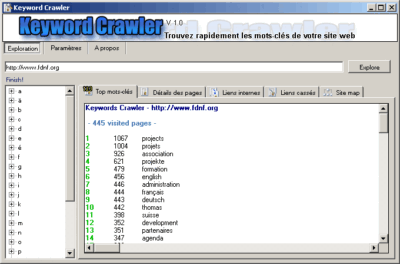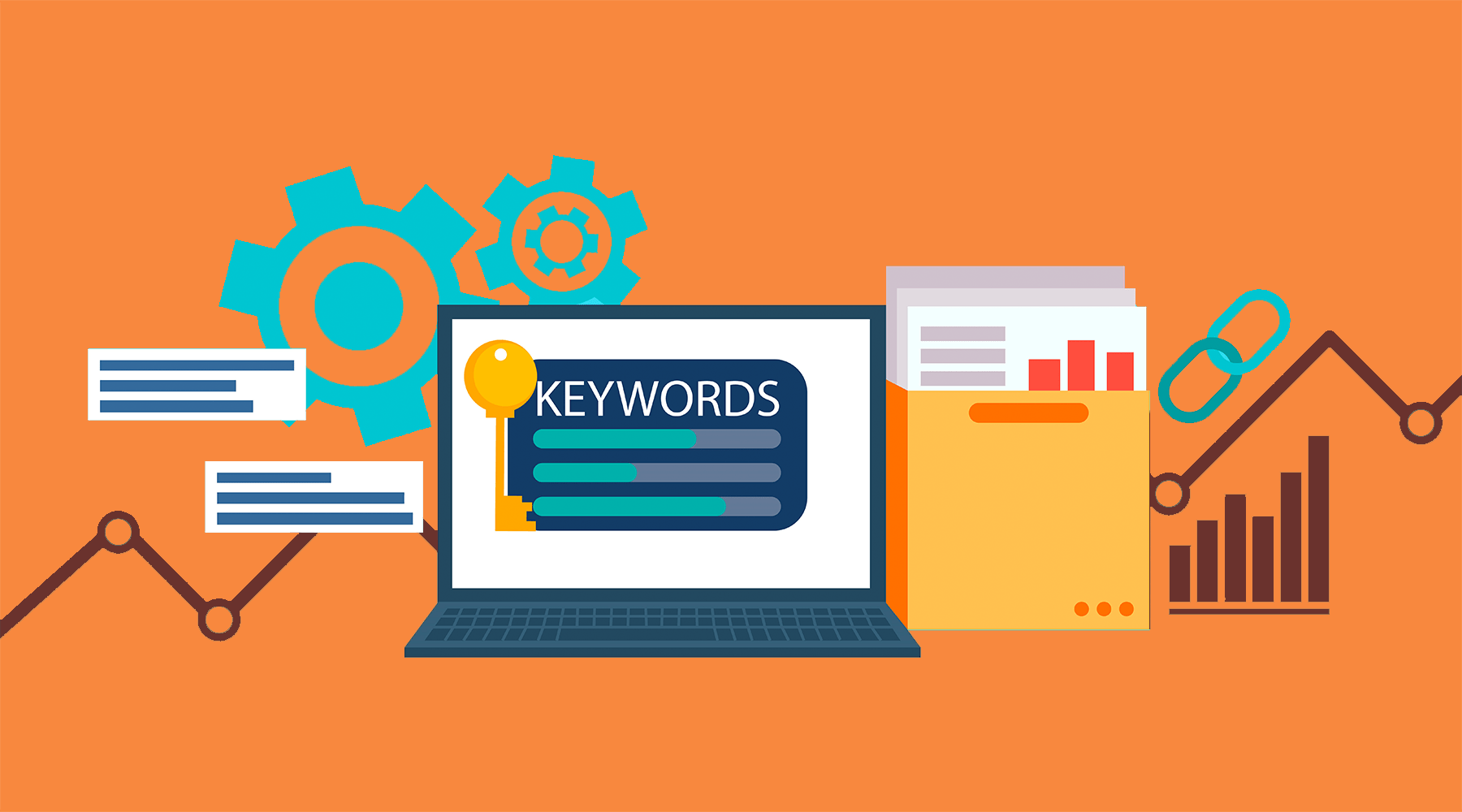In the digital age, keywords are the foundation of online visibility. Whether you're optimizing a website, planning a content strategy, or running a p
In the digital age, keywords are the foundation of online visibility. Whether you’re optimizing a website, planning a content strategy, or running a paid advertising campaign, understanding and collecting the right keywords is essential. That’s where keyword lists crawlers come in—a powerful tool used to automate the extraction and organization of keyword data.
In this guide, we’ll explore what keyword list crawlers are, how they work, their benefits, use cases, and best practices for leveraging them effectively. We’ll also answer common questions related to keyword crawling.
What is a Keyword Lists Crawler?
A keyword lists crawler is a type of web crawler or scraper specifically designed to collect keyword data from various sources across the internet. It can extract keywords from:
- Search engine result pages (SERPs)
- Competitor websites
- Online forums
- Blog articles
- E-commerce listings
- Metadata (titles, descriptions, headings)
Unlike manual research, a crawler automates the process and returns a comprehensive list of keywords that can be analyzed, filtered, and organized based on relevance, frequency, and search volume.
Must visit: experttrading

lists crawler
How Do Keyword Crawlers Work?
Keyword crawlers operate much like traditional web crawlers but with a specialized focus. Here’s a simplified breakdown of how they work:
- URL Targeting: The crawler is given a list of URLs or keywords to search.
- HTML Parsing: It downloads the HTML content of pages and parses through it.
- Text Extraction: The crawler identifies and extracts keywords from relevant HTML tags such as <title>, <meta>, <h1> to <h6>, and body content.
- Filtering and Structuring: Extracted keywords are filtered for duplicates, cleaned (removal of stopwords), and often categorized by relevance or topic clusters.
- Data Export: The final output is often a CSV, Excel, or JSON file containing the keyword lists.
More advanced crawlers may also include machine learning algorithms to determine keyword intent, semantic similarity, or keyword difficulty.
Why Use a Keyword Lists Crawler?
The benefits of using a keyword crawler are vast, especially for marketers, SEO professionals, and content creators:
1. Time Efficiency
Manual keyword research is time-consuming. Crawlers can scan hundreds or thousands of pages in minutes.
2. Competitive Advantage
They allow you to analyze the keyword strategies of your competitors, helping you uncover untapped opportunities.
3. Content Optimization
By extracting keywords from top-ranking pages, you can align your content to match what’s currently working in your niche.
4. Trend Discovery
You can crawl forums, social media, or Q&A platforms to detect trending keywords and topics in real-time.
5. Comprehensive Data
Crawlers don’t just show you the obvious keywords—they help you find long-tail keywords, question-based queries, and synonyms that are often overlooked.
Use Cases for Keyword Lists Crawlers
Here are some practical applications of keyword crawlers:
- SEO Audits: Collect keywords from your own or competitor sites to assess optimization levels.
- Content Ideation: Use extracted keywords to brainstorm blog topics.
- Ad Campaigns: Gather a list of high-intent keywords for PPC advertising.
- E-commerce Optimization: Scrape product descriptions and titles for SEO keyword enrichment.
- Market Research: Discover what terms your target audience is using in specific industries.
Key Features to Look For in a Keyword Crawler
If you’re choosing a keyword crawler tool or building your own, here are some key features to consider:
- Customizable Crawling Depth
- Keyword Filtering Options (e.g., stop words, duplicates)
- Support for Regex and XPath for precision scraping
- Export Capabilities (CSV, JSON, Excel)
- Bulk URL Input
- SERP Scraping with Keyword Position Tracking
- Integration with Keyword APIs (Google, Ahrefs, SEMrush, etc.)
Challenges and Considerations
While powerful, using keyword crawlers comes with a few considerations:
1. Legal and Ethical Use
Always respect website terms of service. Some websites explicitly prohibit scraping in their robots.txt files.
2. Data Accuracy
Keyword crawlers may collect redundant or low-quality keywords. Use filters and natural language processing (NLP) techniques to improve quality.
3. Rate Limiting and IP Blocking
Frequent crawling may get your IP blocked. Use proxies or delay requests to avoid server overload.
4. Data Volume
You can quickly end up with massive datasets. Know how to analyze and prioritize keywords effectively.
Best Practices for Using Keyword Crawlers
- Start with a clear goal: Are you optimizing for SEO, researching competitors, or building a content calendar?
- Use seed keywords strategically: Start your crawl from keywords that are relevant to your niche.
- Combine with SEO tools: Cross-reference crawled keywords with search volume and CPC data from SEO platforms.
- Regularly update your lists: Search trends evolve—crawl frequently to keep your data current.
- Categorize keywords: Segment keywords into topic clusters for more effective content planning.
FAQs About Keyword Lists Crawlers
1. Are keyword crawlers legal to use?
Generally, keyword crawlers are legal if used responsibly. However, scraping content from websites without permission can violate terms of service. Always check a site’s robots.txt file and avoid scraping personal or copyrighted content.
2. Can a crawler find long-tail keywords?
Yes, crawlers can be configured to extract long-tail keywords, especially from user-generated content like forums, product reviews, and FAQs.
3. Do keyword crawlers work with Google search results?
Some crawlers can extract keywords directly from Google SERPs using scraping or APIs. However, Google may restrict automated access, so it’s better to use official APIs or third-party tools when targeting SERPs.
4. How do I clean up a large list of keywords?
You can use keyword cleaning tools or scripts to:
- Remove duplicates
- Eliminate stop words
- Apply filters based on length, frequency, or keyword intent
5. What’s the difference between a keyword tool and a keyword crawler?
A keyword tool typically uses databases and APIs to suggest keywords (like Ubersuggest or Keyword Planner), while a keyword crawler collects live data from the web by scanning web pages.
Conclusion
Keyword list crawlers are indispensable tools for anyone serious about SEO, content creation, or digital marketing. They provide scale, speed, and strategic depth that manual keyword research simply can’t match. Whether you’re looking to monitor competitors, uncover hidden opportunities, or optimize content at scale, a keyword crawler can be a game-changer in your digital strategy toolkit.
By understanding how to use them effectively—and responsibly—you’ll be well on your way to building keyword-rich content that drives visibility, traffic, and conversions.



COMMENTS